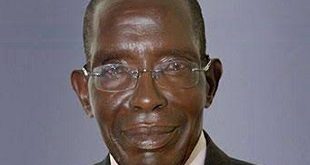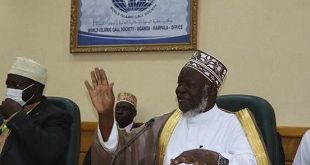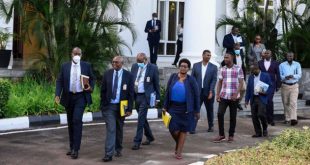
Kisoro, Uganda | THE INDEPENDENT | Inadequate transportation means is hampering the relocation of Congolese refugees from the Nyakabande transit centre in Kisoro district to gazetted refugee camps.
Thousands of refugees are camped at the Nyakabande transit centre since March this year following the fighting between the March 23 Movement (M23) rebels and the Armed Forces of the Democratic Republic of Congo-FARDC in Rutshuru territory. On June 13, the rebels captured the major Uganda-DR Congo border of Bunagana and the neighbouring areas. The rebels claim that they are fighting bad leadership in DR Congo characterized by corruption, xenophobia, and discrimination.
They displaced thousands of civilians with many fleeing to the Ugandan district of Kisoro and others to Rutshuru town. With many at Nyakabande transit camp, others have pitched camp in Bunagana town council and neighbouring Busanza and Muramba sub-counties. However, much as the rebels are encouraging the refugees to return to their homes with assurances of full-time protection, many only cross during the day to work in their gardens and return to sleep in Uganda at night.
After every two weeks, United Nations High Commission for Refugees (UNHCR) relocates more than 100 refugees to the Nakivale refugee camp in Isingiro district to create space at Nyakabande. However, the absence of sufficient transport means is hampering the refugee relocation exercise.
Suzan Ndyamuhaki, the head of African Initiatives for Relief and Development (AIRD) at Nyakabande transit centre, a logistics partner of UNHCR in Uganda, says that UNHCR only has seven buses that are used to transport refugees from Bunagana to Nyakabande and from Nyakabande to Nakivale.
Ndyamuhaki says that they are supposed to set off a convoy of 15 buses per route from Nyakabande to Nakivale but due to the limited number of buses, they only send seven. He says that as a result, whenever the space crisis at the transit centre deepens, they are compelled to hire private buses to help in transporting the refugees.
Philippe Creppy, the UNHCR Assistant Representative Operations in Uganda, says that despite the lack of enough vehicles to transport refugees, UNHCR and other partners will still try to make sure that refugees are relocated to camps from transit centres so that they get better services.
Esther Anyakun, the State Minister for Relief, Disaster Preparedness, and Refugees in the Office of the Prime Minister, says that although the government is still in charge, there is a huge challenge of resources to manage the situation. She says that the Kisoro district’s top authorities will soon tell the public about plans the Office of the Prime Minister is preparing for refugees in the area.
No fighting has been reported in Rutshuru for close to three weeks now but tension has remained high as both rebels and government troops have maintained their positions. On Sunday, at least 135 new refugees registered at the Nyakabande transit centre.
This brings to 40,000, the number of refugees registered at Nyakabande since fighting broke out in March this year. More than 6,000 refugees have also been transferred to the Nakivale refugee camp. An estimated 20,000 refugees are still camped at Bunagana border and the neighbouring Muramba and Busanza sub-counties, according to records from UNHCR and security in Kisoro.
*****
URN
 The Independent Uganda: You get the Truth we Pay the Price
The Independent Uganda: You get the Truth we Pay the Price


